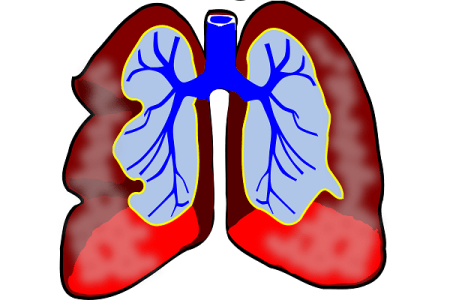Signs and Symptoms of Lung Cancer
- Updated on: Jun 24, 2024
- 3 min Read
- Published on Apr 20, 2021


Early diagnosis of lung cancer improves prognosis and survival rates. It’s important to be aware of the symptoms and undergo appropriate screenings as available. This can improve outcomes in many lung cancer cases.
Lung cancer generally does not have many early symptoms. By the time one notices something is wrong, the cancer has already spread to an advanced stage. In fact, many tumors in the lung never cause any symptoms.
Doctors usually find early stage lung cancers accidentally, for example, when they are taking a chest X-ray for another reason. Read about chest X-rays for lung cancer.
Early symptoms of lung cancer are generally nonspecific. They may be indicative of something else, which is not serious. For example, if you’re a smoker, you’re probably used to a cough, hoarseness, or shortness of breath and you may not bother to see your doctor about these symptoms.
Lung cancer neurological signs and symptoms
Common signs and symptoms of lung cancer are:
- A slight cough or shortness of breath, depending on which part of your lung is affected
- Loss of appetite
- General fatigue
- Eeight loss
- Hoarseness
- Coughing especially if it persists
- Pain in the chest, shoulder, or back
- A change in color of sputum
- Harsh sounds (stridor)
- Repeat lung problems, such as bronchitis or pneumonia
- Coughing up phlegm or mucus, especially with blood
- Coughing with blood
- Muscle wasting
- Headaches
- Swelling on neck or face
- Join pains or bone pains
- Bone fractures
- Neurological problems such as memory loss
- Blood clots
- Bleeding
What Does Lung Cancer Pain Feel Like?
The pain you feel in cancer depends on the type of cancer you have and how it affects your body and how far and which structures of the body has it eroded into.
Not everyone feels pain in the same way. Each person has his or her own experiences about their pain. Only you can understand how much pain you feel. You should be able to tell your doctor how it feels like for its effective control.
There are no nerve endings in the lungs, so you can have a tumor in the lungs without noticing as it will not cause any pain. Most cases of lung cancer are identified from symptoms that appear when the cancer spread [metastasis] to another site, such as the spine or liver or bone etc.
Doctors suggest that any new and unexplained back pain can be an important sign. If a patient with a history of lung cancer notices back pain that did not occur earlier, he or she should talk to their doctor and get it tested quickly to ensure that the cancer is not spread to the spine.
Lung cancer metastases can also cause spinal cord compression. This may result in weakness or numbness in the legs.
Some lung cancers spread into the chest wall. Unlike the lungs, the wall of the chest is sensitive to pain. Even if these tumors are local and are located within the chest only, still they can cause severe pain in the chest, shoulder or back.
Lung cancer can spread to brain. Such a metastasized tumor can produce headache, vomiting, nausea or seizures.
Lung tumors may also block other tissues in the body. For example, if a metastasized tumor blocks the esophagus, it can cause difficulties in swallowing.












